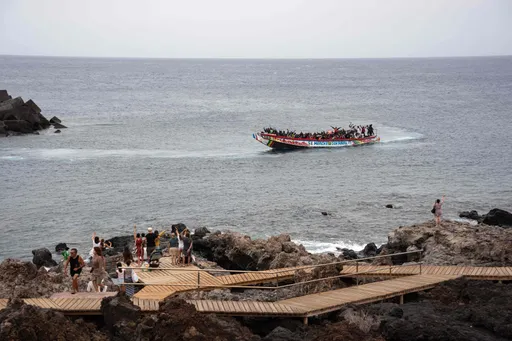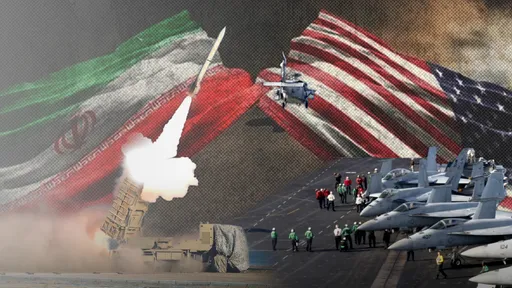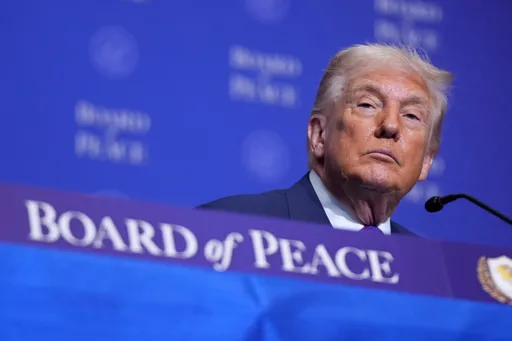A recent US proposal to have greater oversight on the collection and distribution of Libya’s oil revenue among various factions has irked the Libyan officials who see it as a foreign intervention.
In an interview with Anadolu Agency late last month, US Ambassador and Special Representative to Libya Richard Norland said he feared rival groups vying for territorial control might try to get hold of the country's vital oil income.
“We are proposing a mechanism to manage oil revenues until an agreement is reached on broader political issues,” he said.
The US has expressed concern that oil income can be used for political purposes, instead of paying for subsidised food, medicine and salaries of government employees.
The US is working with the United Nations, European Union and Egypt to set up a mechanism for the management of petrodollars until Libyan political groups agree to an alternative, Norland said.
But Libyan officials have reservations about the US-backed mechanism.
READ MORE: UN, US demand end to Libya oil fields blockade as prices soar
Libya’s Oil Minister Mohammad Aoun said the idea floated by an American diplomat goes against the principle of respecting North African country’s sovereignty.
Libya sold $21.5 billion worth of oil last year, recording the highest sales in five years.
It remains unclear how the US-proposed mechanism will work or if it involves international players having direct control over the distribution of funds.
Libyan National Oil Corporation (NOC) manages the production, transportation, and sale of oil, which deposits the export proceeds with the central bank. The central bank, in turn, disburses funds among various stakeholders.
Rosemary DiCarlo, the UN Undersecretary General for Political and Peacebuilding Affairs, has also expressed concern over lack of oversight on how oil revenue is spent.
All about control
As part of a UN-backed peace plan, an interim government under Prime Minister Abdulhamid Dbeibah was set up in Libya in 2021 after years of bloody war, which divided the country.
But a national election, which was supposed to take place in December, had to be postponed as rival groups failed to agree to rules and procedures.
Consequently, Fathi Bashagha, the former interior minister, declared himself as the prime minister after being elected by the Tobruk-based parliament.
Libya has parallel centres of power with Dbeibah’s Government of National Unity (GNU) based in Tripoli in the west and Bashagha support based in the east where warlord Khalifa Haftar holds sway.
There are mounting concerns that renewed infighting can push Libya towards another crisis as tensions rise over who has the right to rule.
The two sides came to the brink of another confrontation in early March after Bashagha amassed militia near Tripoli. He withdrew under pressure from the UN.
READ MORE: Libya's oil production to increase as blockade ends
An international fallout
Libya has the ninth-largest known oil reserves in the world, and the biggest oil reserves in Africa.
Despite the war-related disruptions and lack of investments, its production at 1.2 million barrels per day (bpd) is significant - around the same quantity that Russia exported to Europe last year.
Any disruption in Libyan oil sales to the international market can lead to a price surge especially when the global energy supply is tight.
In March militias blocked Libya’s two largest oil fields- Sharara and El Feel - taking off 330,000 bpd from the market.
The shutdown came at a time when oil prices had shot up to $130 a barrel in the wake of the Russian attack on Ukraine.
The US was quick to demand an immediate resumption of oil production from fields as Washington scrambled to ensure that the world market was well supplied after it imposed sanctions on Russian oil exports.
Supply from the Libyan fields resumed a few days later.
US officials reportedly spoke to Fathi Bashagha last month to seek his assurance if he could guarantee a steady supply in the wake of the discontinuation of Russian oil export.
Libya’s current oil output is less than the 1.8 million bpd it produced before the 2011 uprising toppled long-term leader Muammar Gaddafi and led to chaotic civil war.
At the time, Libya was a major oil supplier to European countries such as Italy and France. But increasing the production to that level requires hundreds of millions of dollars in investments in oil fields and pipelines.
Experts say recent US efforts to come up with a mechanism to manage Libya’s oil revenue has more to do with politics than pumping more oil into the market.
Jalel Harshaoui, a senior researcher at the Swiss think tank Global Initiative against Transnational Organized Crime, told TRT Russian that Norland’s proposal involves the management of oil revenues, but not the oil itself. So, it is a financial issue, he said.
"Concerning Libya's hydrocarbon exports, the position of Western powers is very simple. Libya produces more than 1.2 million barrels per day. This is expected to continue. Any noticeable drop below this level would be considered problematic," he said.
There hasn’t been any pressure from the US and European countries to increase production yet.
"If a crisis-ridden Libya can hold steady at 1.2 or 1.3 million bpd, Western planners will consider that 'good enough’,” he said.
READ MORE:Can Libya become the EU’s energy supplier following the war in Ukraine?























